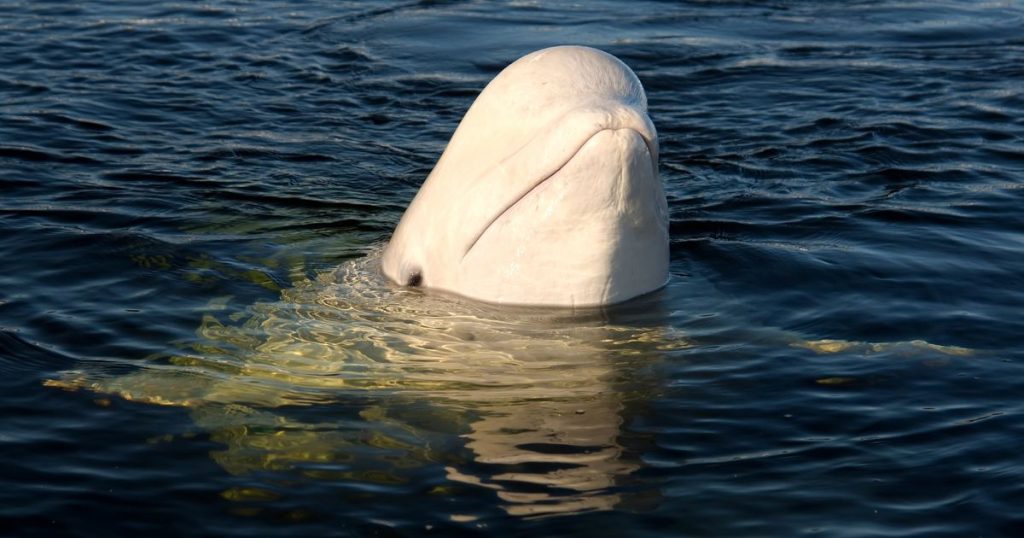A white beluga whale named “Hvaldimir,” who was first spotted in Norway wearing a harness that sparked rumors of being a Moscow spy, has been found dead in the Risavika Bay in southern Norway. The whale’s carcass was discovered by a father and son who were fishing in the area. Marine biologist Sebastian Strand, who has been monitoring Hvaldimir’s movements for the past three years, expressed deep sadness over the sudden death of the 4.2-meter long, 1,225-kilogram whale. Despite no major external injuries being visible on the animal, the cause of death remains unclear.
Hvaldimir was first seen in April 2019 near the island of Ingøya in Norway, not far from the Arctic city of Hammerfest, wearing a harness with what appeared to be a mount for a small camera. The buckle on the harness was marked with text suggesting it was from St. Petersburg, leading to allegations that the beluga was a spy whale. The Russian navy is known to have trained whales for military purposes, adding fuel to the speculation. However, as Hvaldimir frequented several Norwegian coastal towns, it became apparent that the whale was friendly and enjoyed interacting with people, leading some to wonder if it had been used as a therapy animal in Russia.
According to NGO Marine Mind, Hvaldimir showed a strong interest in people and responded to hand signals, indicating that he may have arrived in Norway after crossing over from Russian waters where he was possibly held in captivity. The beluga’s tameness and playful nature led to it becoming a beloved figure in the communities it visited along the Norwegian coast. Despite the speculation surrounding its origin and purpose, Hvaldimir’s death has saddened many, with experts now tasked with determining possible causes for its demise.
The discovery of Hvaldimir’s dead body has left marine biologists and experts in shock, as the beluga whale was recently seen in good condition and there were no obvious injuries present on its body. The sudden death of the popular whale has reignited theories and questions about its origins and the circumstances of its life before arriving in Norway. With no clear answers as to why Hvaldimir passed away, scientists and researchers are now conducting examinations to try and determine what may have led to the demise of the unique and mysterious animal.
The death of Hvaldimir has sparked renewed interest in the case of the alleged spy whale, as its unusual behavior, previous captivity, and harness equipped with a camera mount have raised suspicions about potential military ties. The Norwegian media has been abuzz with speculation about the true purpose of the beluga whale and whether it was used in espionage activities. Despite the intrigue surrounding the circumstances of Hvaldimir’s life and death, the focus now shifts to understanding the factors that may have contributed to the loss of the charismatic and enigmatic whale.
As the investigation into Hvaldimir’s death continues, marine biologists and experts are working to uncover the truth behind the beloved beluga’s sudden passing. The mysteries surrounding the whale’s origins, captivity, and potential ties to military activities remain unresolved, leaving many questions unanswered. The loss of Hvaldimir has left a void in the hearts of those who followed its journey and interacted with it along the Norwegian coast, underscoring the impact that one remarkable animal can have on the world around it. Despite its tragic end, Hvaldimir’s story serves as a reminder of the complex and often mysterious ways in which humans and wildlife intersect, highlighting the need for further research and conservation efforts to protect and understand marine life in our oceans.


